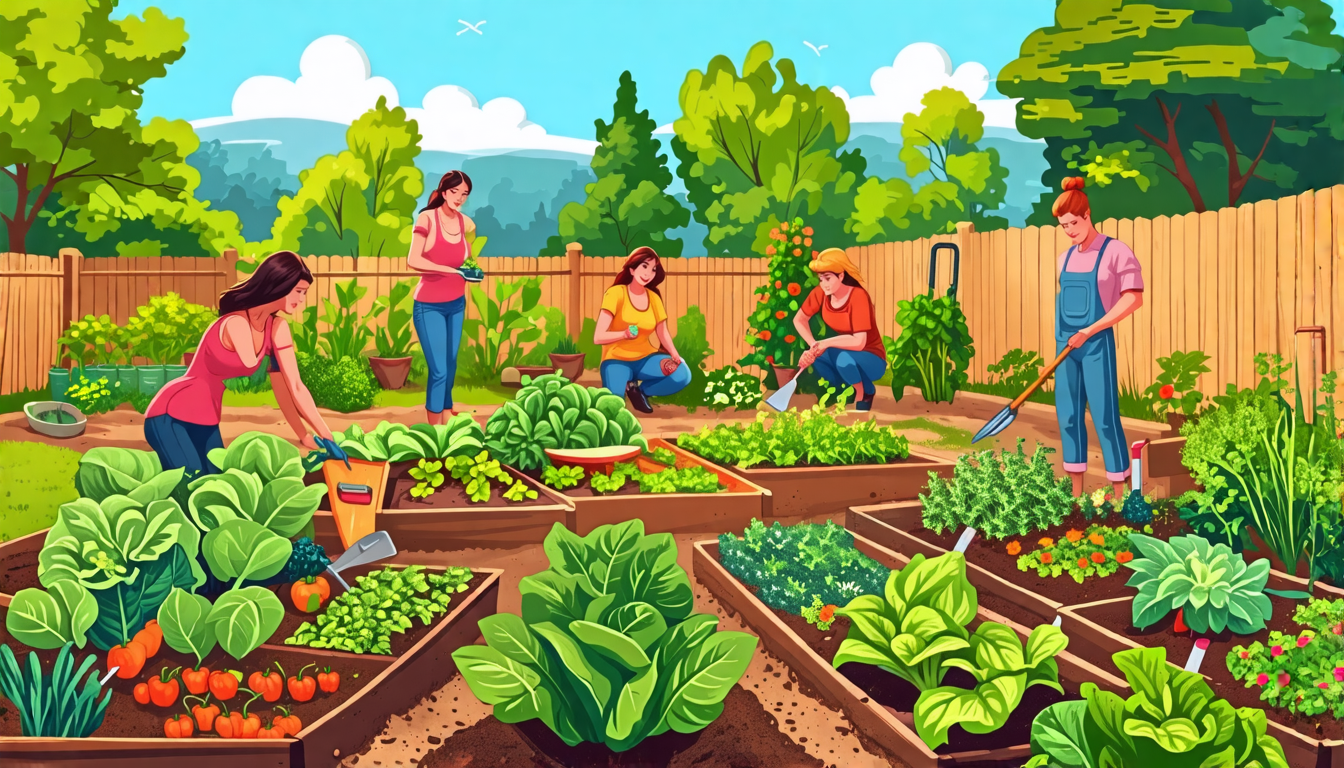
Cultivating Success: A New Study Uncovers the Key Factors for a Thriving Home Garden Program
Introduction: Beyond the Seed Packet
The surge in home gardening represents a powerful shift towards sustainability, food security, and personal well-being. While countless resources offer tips on soil and sunlight, a groundbreaking new study moves beyond the basics. This research provides a data-driven blueprint, uncovering the programmatic and human elements that separate a flourishing garden initiative from a failed one.
The Core Findings: What the Research Reveals
The study analyzed hundreds of home garden programs, identifying clear patterns that lead to success. The findings shift the focus from purely horticultural techniques to a more holistic, community-centered model.
The Top 5 Pillars of a Successful Home Garden Program
Pillar 1: Structured Education & Ongoing Mentorship
A single workshop at the start of the season is not enough. The study found that programs offering continuous learning cycles, such as seasonal workshops and one-on-one mentorship, had significantly higher success rates. This ongoing support helps gardeners navigate unexpected problems like pests or disease, preventing early discouragement.
Pillar 2: Building a Strong Community Network
Gardening can be a solitary activity, but success is often a team effort. The most effective programs actively fostered community through seed swaps, harvest potlucks, and shared tool libraries. This network provides a vital support system for sharing knowledge, resources, and encouragement.
Pillar 3: Access to Quality Resources (Beyond Just Soil)
It’s not enough to just have seeds and dirt. The research highlighted the critical importance of reliable water access, regionally appropriate seeds, and, most importantly, professional soil testing. Knowing your soil’s specific nutrient profile allows for targeted amendments, saving time and money.
Pillar 4: Setting Realistic, Measurable Goals
Vague ambitions like “grow more food” often lead to a lack of focus. Successful programs helped participants set specific, achievable targets, such as “grow enough tomatoes to can 10 jars of sauce” or “establish a continuous harvest of salad greens for three months.” This creates a clear sense of purpose and accomplishment.
Pillar 5: Incorporating Feedback Loops & Adapting
Static programs become obsolete. The study champions a dynamic approach where coordinators and gardeners collectively track successes and failures. This data is then used to adapt and improve the program each year, ensuring it remains relevant and effective.
Why Many Garden Programs Struggle (And How to Fix It)
Understanding common failures is the first step toward preventing them. The study pinpointed several recurring issues that undermine home garden initiatives.
The “Plant and Pray” Method: Lack of Follow-Up
High initial enthusiasm often fades without sustained engagement, leading to neglected plots. The study’s data shows that programs implementing a “gardening buddy” system and mandatory mid-season check-ins saw participant follow-through increase by over 60%.
One-Size-Fits-All Curriculum
When beginner and advanced gardeners are lumped together, both groups become disengaged. The research advocates for tiered learning paths—offering “Gardening 101” alongside specialized workshops on topics like seed saving or organic pest control—to cater to varying skill levels.
Underestimating the “Start-Up” Cost (Time and Money)
Unexpected costs for tools, soil amendments, and irrigation, coupled with the significant time investment, are major sources of dropout. The most successful programs provide participants with a clear, upfront budget and a realistic weekly time commitment chart to manage expectations from day one.
Traditional Advice vs. The New Evidence-Based Approach
This new research challenges many long-held gardening maxims, replacing them with precise, evidence-based strategies.
| Traditional Gardening Advice | The New Study’s Evidence-Based Approach |
|---|---|
| “Just add compost.” | “First, conduct a soil test to identify specific nutrient deficiencies.” |
| “Choose a sunny spot.” | “Map sun exposure throughout the day and season, noting micro-climates.” |
| “Water regularly.” | “Implement a water-saving irrigation schedule based on soil moisture sensors.” |
| “Grow what you like to eat.” | “Prioritize high-yield, climate-appropriate crops to ensure a rewarding harvest.” |
The Unique Factor You Might Not Know: The “Social Yield”
Perhaps the most profound finding of the study is the concept of “Social Yield.” While a bountiful harvest is the obvious goal, the research found that the strongest predictor of a gardener’s long-term commitment was not the weight of their produce, but the number of meaningful social connections they formed within the program. Gardens that actively fostered community saw a 70% higher participant retention rate. This proves that the human connections forged over shared labor and success are as vital to a program’s health as sunlight and water are to the plants.
Frequently Asked Questions (FAQs)
What is the most surprising factor the study found?
The critical importance of the “first success.” Programs that strategically helped gardeners achieve a quick, early harvest (e.g., with fast-growing radishes or leafy greens) saw dramatically higher long-term motivation and retention compared to those who started gardeners with slow-growing crops like tomatoes or peppers.
How can I apply these findings to my own small home garden?
Even without a formal program, you can adopt these principles. Find a “garden mentor” in your neighborhood or online, set one specific, measurable goal for the season, and join a local gardening club or online forum to build your own support community.
Does the study address gardening in small spaces or urban environments?
Absolutely. A significant portion of the research was dedicated to urban and small-space agriculture. It concluded that the most successful programs in these environments heavily emphasized container gardening techniques, vertical growing systems, and forming partnerships for shared community garden plots.
Where can I find the full study?
The study, titled “Cultivating Community: A Multivariate Analysis of Home Gardening Program Success Factors,” was published in the Journal of Horticultural Behavior and is available through their online portal. A public-facing summary brief is also available from the National Agriculture Extension Network’s website.






